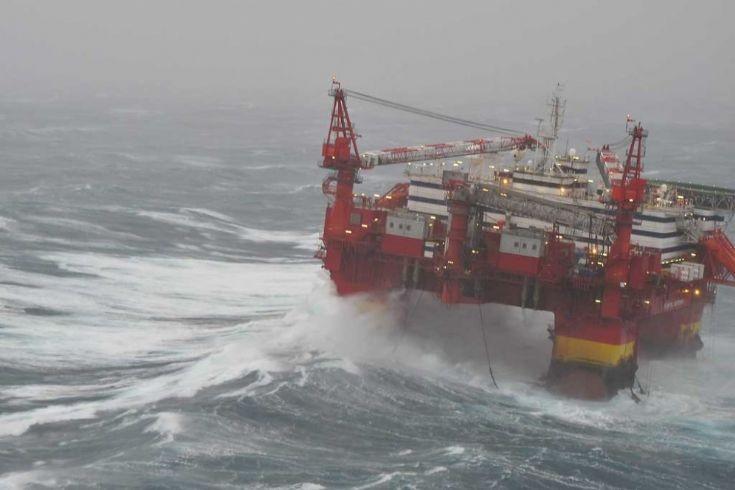
OIL BILLIONS LOSING

Exploration for oil and gas in the North Sea has all but ground to a halt as low oil prices take their toll on companies, according to a report published on Tuesday by the industry trade body.
Oil and Gas UK predicts companies could drill as few as seven exploration wells this year — fewer than at any time since it started collecting the data in the late 1970s. That would compare with 13 last year and 40 in 2008.
The organisation also says that the North Sea industry as a whole will spend just £1bn looking for new sources of oil and gas — one eighth of the average over the past few years.
The report shows that as the price of oil has collapsed from $115 a barrel in 2014 to about $35 now, the first casualty has been spending on new discoveries. Industry figures are warning that, unless activity picks up soon, billions of barrels of oil could be lost completely, left in the seabed without the infrastructure or skills to get it out.
Deirdre Michie, chief executive of Oil and Gas UK, said: "Activity is effectively drying up. Companies' current plans mean recovering 6.3bn barrels of oil equivalent but, after that, there is a significant gap."
The report warns: "Oil and gas companies are cutting almost all their discretionary expenditure to survive in a $30 [per barrel] world."
Oil and Gas UK, which represents members from across the British offshore oil industry, said revenues dropped last year by 30 per cent. Nearly half of all fields are now loss-making.
Similar trends are being seen around the world, with an analysis by Goldman Sachs suggesting that $1tn of spending on future oil projects is at risk of being cancelled.
But the impact of the falling oil price is being felt particularly in the North Sea, where it costs more to extract oil than anywhere else in the world, despite reductions.
The effects have started to become visible on individual companies that operate there. On Monday it was announced that First Oil Expro, the financially distressed company founded by entrepreneur Ian Suttie, had sold its two main subsidiaries to another group, Zennor Petrolem, as part of a pre-packaged administration.
Executives are pushing for the government to lower taxes to help more companies survive and continue both producing and exploring.
Ms Michie said she wanted the government to abolish the 20 per cent supplemental charge on oil and gas companies' profits, which she estimated would cost £100m per year. She also argued that companies should not have to pay a 30 per cent rate of corporation tax — 10 points higher than the standard rate — although she could not say how much such a move would cost the exchequer.
A separate report, published on Tuesday by scientists at the UK Energy Research Centre, had more bad news for the gas industry. It argues that natural gas should not be relied upon to help bring carbon emissions down.
The report shows that any new gas-fired power plants will have to operate to only a fraction of their capacity into the 2030s if the UK is to stick to its carbon reduction targets. It adds that without carbon capture and storage technology, government funding for which was cancelled last year, all gas power will have to be shut down by 2050 to hit those targets.
The findings undermine the policy of Amber Rudd, energy secretary, to use gas as a "bridging fuel" to help meet the UK's electricity needs after coal-fired power is shut down and before renewables need fewer subsidies.
Ms Rudd said in her major policy speech last year that building new gas-fired plant was "imperative" and "central to our energy-secure future".
But Mike Bradshaw, professor of global energy at Warwick Business School and one of the report's authors, said: "A second dash for gas might give us short-term gains in reducing emissions . . . but in the absence of CCS it would compromise the UK's carbon targets."
-----
More:
NORWAY'S INVESTMENTS WILL FALL 9.3%






